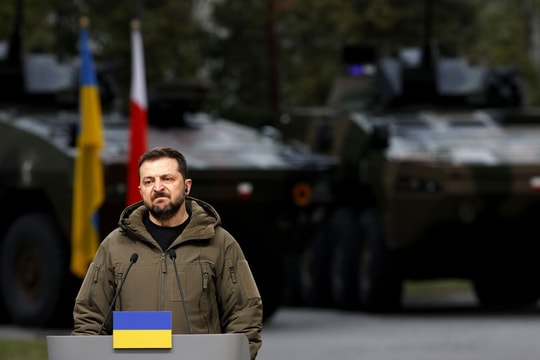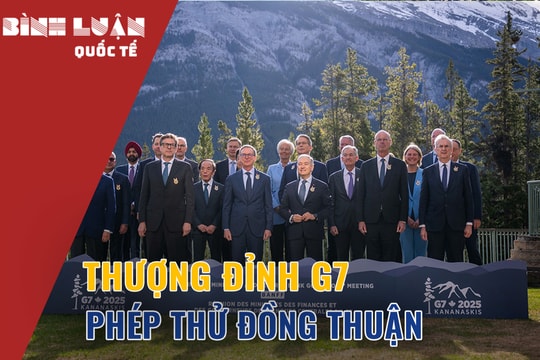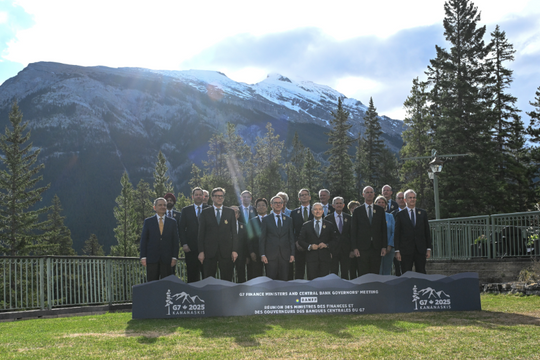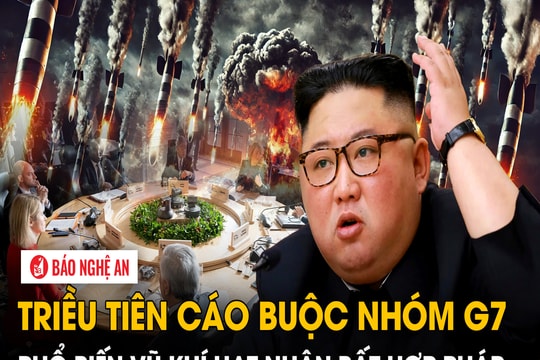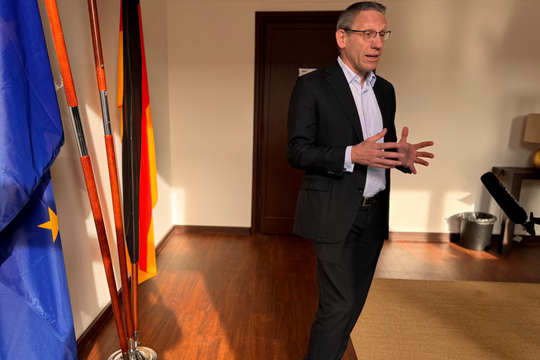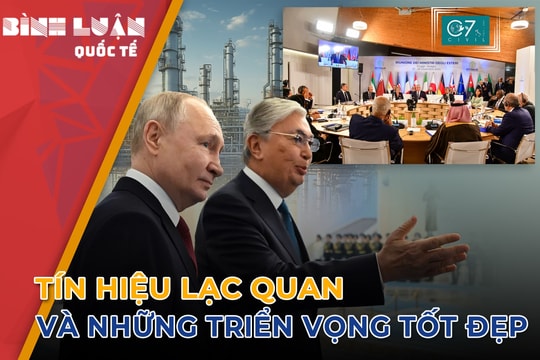G7 Summit Joint Statement: Many new points when referring to global economic security
Today (May 21), the G7 Summit held in Hiroshima entered its final working day. The focus was on the discussion of the Russia-Ukraine conflict with the direct participation of Ukrainian President Zelensky. The Summit issued a joint statement with many new points when referring to global economic security.
The joint statement mentioned many important issues related to world economic security, digital technology, global environment, the Russia-Ukraine conflict, etc. and the leading role of G7 members in these issues. The statement especially emphasized the countries' stance on strengthening the international order based on rules, continuing to provide aid to Ukraine, and making efforts to realize a world without nuclear weapons.
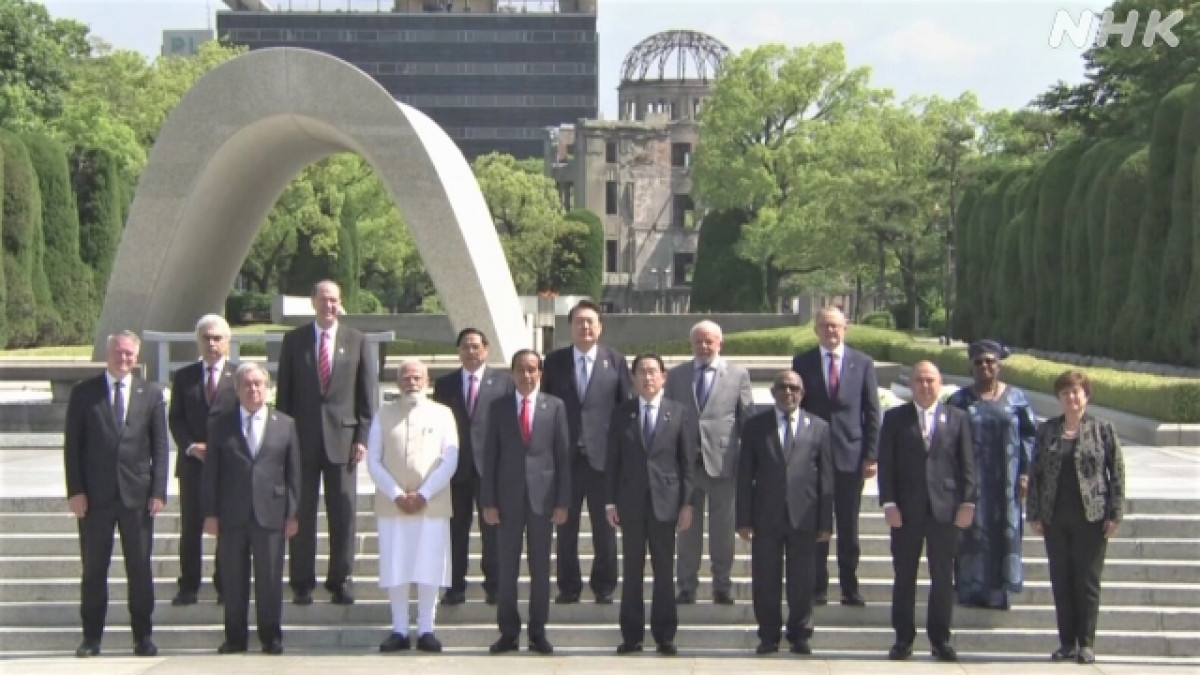 |
| G7 leaders and guest countries visit Hiroshima Peace Park. Photo: NHK |
Regarding the Russia-Ukraine conflict, the Statement stated that sanctions against Russia will continue and aid will continue to be provided to Ukraine. Regarding China, the Statement expressed deep concern over the situation in the South China Sea and East China Sea, strongly opposed unilateral actions that change the status quo in general through violence and intimidation, and affirmed the importance of peace and stability in the Taiwan Strait.
In the content of banning the use of nuclear weapons, the statement emphasized the efforts of the parties to realize a nuclear-free world. Regarding the world economy, the G7 leaders agreed to focus attention on the changes in the world financial system and propose appropriate measures to maintain the stability of the financial system.
Economic security was highlighted prominently in the statement. In the context of the growing trend of some countries using economic threats to influence the economic policy decisions of others through various forms including import bans, efforts to promote cooperation among G7 members to counter this trend are extremely important.
Food risk is also a specific policy to support developing and emerging countries. In addition, the statement mentioned global digital technology with the introduction of the "Hiroshima AI process". Meanwhile, public attention focused on the talks between Japanese Prime Minister Kishida Fumio and South Korean President Yoon Suk Yeol and the Italian Prime Minister returned home to direct the work to overcome the consequences of the flood.
This is the third time the two leaders have held direct talks aimed at improving bilateral relations. The Japanese Prime Minister said that this shows that bilateral relations have progressed. President Yoon Suk Yeol hopes that bilateral relations will show positive signs in the coming time.
This morning (July 21), Italian Prime Minister Giorgia Meloni, who is attending the G7 Summit, held a press conference to announce that she will not participate in the agenda on May 21 and will return to her country to direct the work to overcome the consequences of floods in Emilia-Romagna, Northern Italy. This decision has received consensus from both G7 leaders and other countries. Prime Minister Meloni also announced that next year the G7 Summit will be held in Italy in June./.


